When I was fifteen, I had one of the most magical times of my life performing in “You’re a Good Man, Charlie Brown” in my hometown. I made some fast friends that summer, some of whom I am still in touch with, most of whom I am not. I am not, for instance, still in touch with the twenty-year-old who played Snoopy (though he might very well be reading this right now, thanks to the power of the internet. Hey man, long time no see!)
Snoopy was a half-Asian dream concoction. He was tall and dark-haired, with cheekbones that could cut an entire bamboo forest and a tan, lean body. (If that sentence sounds straight out of an Asian-friendly YA novel, you’re not mistaken. I was, at the time, a fifteen-year-old ball of Asian hormones, and probably haven’t grown up much since.) It was as if I lived in mute fear of his attractiveness, speaking to him only when my script called for it. Until one day, when he walked in wearing a t-shirt that read “Don’t worry, be hapa.”
“Are you half-Asian?” I asked him, my heart pounding in my chest. He confirmed what I already knew--he was. “I’m half-Chinese,” I said by way of explanation.
He ran at me and fairly picked me off the floor in a giant bear hug. “Me too!” he said, holding me tight to him. “Hapas unite!” I had bonded with one or two other half-Asians in my life before, but this felt different. Snoopy and I were not only of the same ethnicity, we used the same words to identify ourselves, and that new feeling (coupled with the realities of being fifteen)-- well, it’s enough to make me remember the moment now, a continent away and nearly a decade later.
Growing up in California, my parents taught me that “hapa” was the word for my ethnic makeup. They taught me it meant half-Asian. I had a word, an identity, an umbrella to shield myself under. It enabled me to connect with other people of my ethnic makeup, or at least to half-heartedly flirt with men five years too old for me. But it wasn’t until I got to college that I learned that this word was not only uncommon on the East Coast but it had a more complicated history than I’d assumed.
“Hapa” literally means “half” in Hawaiian (it is, in fact, a pidgin word borrowed from English.) After the advent of colonialism in the eighteenth century, Whites as the minority were the assumed other in the Hawaiian Islands, so its original use, “hapa ha’ole,” meant half-European, not half-Asian, or even half-Hawaiian. It was a derogatory term for people of mixed race used by native Hawaiians, who were then the ethnic majority in the islands. This, in turn, is complicated by the realities of racial mixing in the era of colonialism, particularly the questions of consent that arise when addressing these issues.
Through the years, “hapa” has been appropriated to its current mainland meaning (half-Asian) meaning it has undergone a change in the assumed racial majority of the society it is used in as well as a lessening of the derisive connotations of the original word. As Wei-Ming Dariotis explains in “Hapa: The Word of Power,” as Asian emigration to the Hawaiian Islands increased during the twentieth century, so did Asian American appropriation of the term “hapa.” In her paper, Dariotis relates that “many Native Hawaiian people object not only to the way the word has been changed in its grammatical usage, but also to how it is applied to anyone of mixed Asian and/or Pacific Islander heritage, when it implies Native Hawaiian mixed heritage. This is not merely a question of trying to hold on to word that like many words encountered in the English language has been adopted, assimilated, or appropriated. This is a question of power. Who has the power or right to use language?” She further explains her conflicted feelings about this revelation, saying that “the word “Hapa” was chosen because it was the only word we could find that did not really cause us pain. It is not any of the Asian words for mixed Asian people that contain negative connotations either literally (e.g. “children of the dust,” “mixed animal”) or by association (Eurasian)”-- she didn’t want to give up the only non-offensive word she had to explain her identity.
I, like Dariotis, have always strongly gravitated towards the word, since I grew up with it. It was the only simple answer I could offer whenever society demanded to know what, exactly, I was. I’ve known it since I was born: I’ve always been hapa. Besides, I had this one amazing teenage bonding moment over the word--I couldn’t lose it! But as an Asian American, I am also all too aware of the dangers of cultural appropriation, having seen far too much Orientalism and tokenism in mainstream American media.
In her paper “Foregrounding Native Nationalisms: A Critique of Antinationalist Sentiment in Asian American Studies,” Candice Fujikane argues that Asian Americans “refuse to see themselves as the beneficiaries of [the US] colonial system”-- for those reasons I wish to cling to the word “hapa,” since it is not an appropriation by the white majority culture, but by another minority. However, as Dariotis argues, it is a question of power, and even Fujikane refers to Asian Americans in Hawaii as “settlers.”
What to do, then, about "hapa?" We did use it in our series: Caela even wears a sweatshirt printed with “Don’t worry, be hapa,” just like Snoopy’s. I personally can’t imagine my life without the word. And yet I don’t condone any other forms of cultural appropriation: it’s cheap; it’s usually ignorant.
I think back to the summer of 2005, when I stood dwarfed by Snoopy’s sweaty embrace, feeling something a little bigger than a teenage crush-- solidarity. A sense of belonging. I agree that, in theory, the word “hapa” should be put to bed by non-native Hawaiian speakers, but realistically, I'm finding it hard to let it go.
Snoopy was a half-Asian dream concoction. He was tall and dark-haired, with cheekbones that could cut an entire bamboo forest and a tan, lean body. (If that sentence sounds straight out of an Asian-friendly YA novel, you’re not mistaken. I was, at the time, a fifteen-year-old ball of Asian hormones, and probably haven’t grown up much since.) It was as if I lived in mute fear of his attractiveness, speaking to him only when my script called for it. Until one day, when he walked in wearing a t-shirt that read “Don’t worry, be hapa.”
“Are you half-Asian?” I asked him, my heart pounding in my chest. He confirmed what I already knew--he was. “I’m half-Chinese,” I said by way of explanation.
He ran at me and fairly picked me off the floor in a giant bear hug. “Me too!” he said, holding me tight to him. “Hapas unite!” I had bonded with one or two other half-Asians in my life before, but this felt different. Snoopy and I were not only of the same ethnicity, we used the same words to identify ourselves, and that new feeling (coupled with the realities of being fifteen)-- well, it’s enough to make me remember the moment now, a continent away and nearly a decade later.
Growing up in California, my parents taught me that “hapa” was the word for my ethnic makeup. They taught me it meant half-Asian. I had a word, an identity, an umbrella to shield myself under. It enabled me to connect with other people of my ethnic makeup, or at least to half-heartedly flirt with men five years too old for me. But it wasn’t until I got to college that I learned that this word was not only uncommon on the East Coast but it had a more complicated history than I’d assumed.
“Hapa” literally means “half” in Hawaiian (it is, in fact, a pidgin word borrowed from English.) After the advent of colonialism in the eighteenth century, Whites as the minority were the assumed other in the Hawaiian Islands, so its original use, “hapa ha’ole,” meant half-European, not half-Asian, or even half-Hawaiian. It was a derogatory term for people of mixed race used by native Hawaiians, who were then the ethnic majority in the islands. This, in turn, is complicated by the realities of racial mixing in the era of colonialism, particularly the questions of consent that arise when addressing these issues.
Through the years, “hapa” has been appropriated to its current mainland meaning (half-Asian) meaning it has undergone a change in the assumed racial majority of the society it is used in as well as a lessening of the derisive connotations of the original word. As Wei-Ming Dariotis explains in “Hapa: The Word of Power,” as Asian emigration to the Hawaiian Islands increased during the twentieth century, so did Asian American appropriation of the term “hapa.” In her paper, Dariotis relates that “many Native Hawaiian people object not only to the way the word has been changed in its grammatical usage, but also to how it is applied to anyone of mixed Asian and/or Pacific Islander heritage, when it implies Native Hawaiian mixed heritage. This is not merely a question of trying to hold on to word that like many words encountered in the English language has been adopted, assimilated, or appropriated. This is a question of power. Who has the power or right to use language?” She further explains her conflicted feelings about this revelation, saying that “the word “Hapa” was chosen because it was the only word we could find that did not really cause us pain. It is not any of the Asian words for mixed Asian people that contain negative connotations either literally (e.g. “children of the dust,” “mixed animal”) or by association (Eurasian)”-- she didn’t want to give up the only non-offensive word she had to explain her identity.
I, like Dariotis, have always strongly gravitated towards the word, since I grew up with it. It was the only simple answer I could offer whenever society demanded to know what, exactly, I was. I’ve known it since I was born: I’ve always been hapa. Besides, I had this one amazing teenage bonding moment over the word--I couldn’t lose it! But as an Asian American, I am also all too aware of the dangers of cultural appropriation, having seen far too much Orientalism and tokenism in mainstream American media.
In her paper “Foregrounding Native Nationalisms: A Critique of Antinationalist Sentiment in Asian American Studies,” Candice Fujikane argues that Asian Americans “refuse to see themselves as the beneficiaries of [the US] colonial system”-- for those reasons I wish to cling to the word “hapa,” since it is not an appropriation by the white majority culture, but by another minority. However, as Dariotis argues, it is a question of power, and even Fujikane refers to Asian Americans in Hawaii as “settlers.”
What to do, then, about "hapa?" We did use it in our series: Caela even wears a sweatshirt printed with “Don’t worry, be hapa,” just like Snoopy’s. I personally can’t imagine my life without the word. And yet I don’t condone any other forms of cultural appropriation: it’s cheap; it’s usually ignorant.
I think back to the summer of 2005, when I stood dwarfed by Snoopy’s sweaty embrace, feeling something a little bigger than a teenage crush-- solidarity. A sense of belonging. I agree that, in theory, the word “hapa” should be put to bed by non-native Hawaiian speakers, but realistically, I'm finding it hard to let it go.
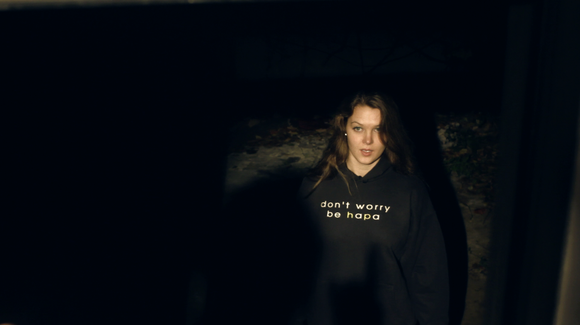
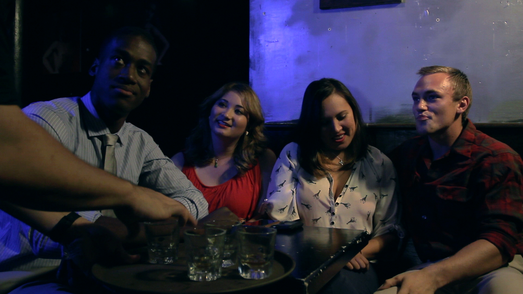
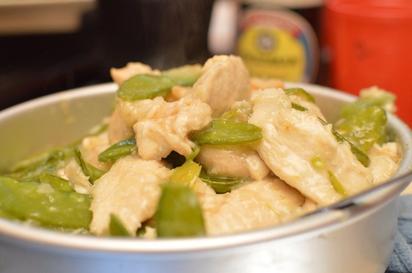


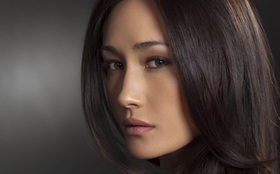
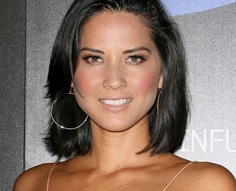


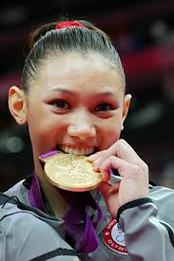
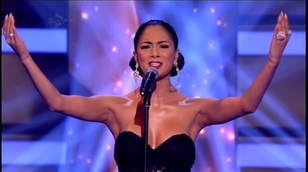

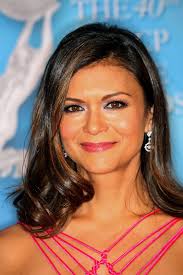
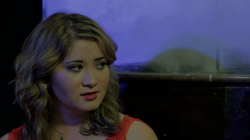
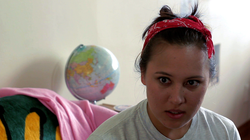
 RSS Feed
RSS Feed
